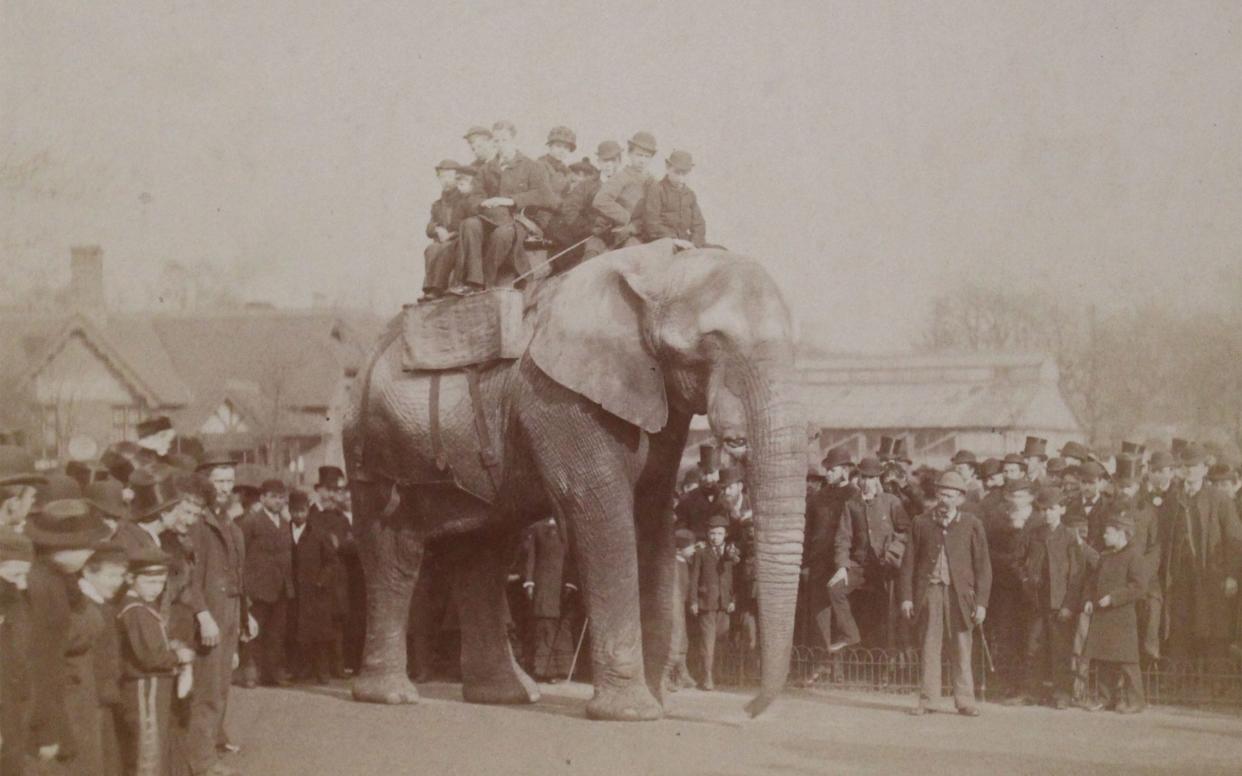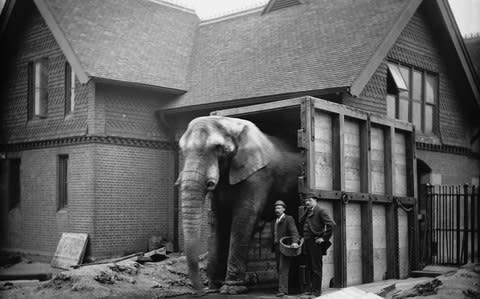Attenborough and the Giant Elephant is the bittersweet tale of Jumbo, the first animal superstar: review

One could easily have imagined Attenborough and the Giant Elephant (BBC One), the bittersweet tale of the world’s first animal superstar – Jumbo the elephant, London Zoo’s foremost attraction in Victorian times – filling a prime-time slot in the Christmas or Boxing Day schedules. But perhaps it was deemed too sad. Too liable to dial down Yuletide high spirits with its archaeological examination of unintentional animal cruelty and the appalling ignorance of generations past.
Attenborough grabbed our attention from the off, promising a story of a giant among African elephants, loved by millions but whose life was “troubled, fuelled by alcohol, terrifying fits of violence, a near-mystical relationship with his keeper and a tragic end that seems hard to believe.”
And he delivered: taking us through Jumbo’s extraordinary by any standards 25 or so years on this planet. From the moment he arrived (a true wonder of the world in those pre-mass media times) in the London of the 1860s to the sad circumstances in which, sold across the Atlantic to showman P T Barnum, Jumbo was hit by a train and killed in Ontario, Canada, in 1885.
All this refracted through a modern social and scientific lens that measured and prodded and revealed to us the horrific pain this poor creature’s mutated and untended teeth inflicted on him night and day. Which in turn incited rages that his loving but misanthropic keeper – their relationship a fascination in itself – sated in the only way he knew how, with gallons of alcohol.
Pain, too, from the damage inflicted by legions of humans riding eight-at-a-time on Jumbo’s back, year after year. The evidence visible to scientists now in his preserved skeleton, but entirely unappreciated at the time.

Attenborough did his best to see the positives. He took us to elephant sanctuaries in Africa and America, showed us how much we humans have learnt and changed and improved our attitudes in the century and a half since. How zoos have gradually abandoned the keeping of large animals in close confinement.
Blue Planet II: The spectacular BBC natural history series, in pictures
He couldn’t slough off the air of sadness, though. And Jumbo’s story felt all the more of a downer coming, as it did, hard on the sensitive tail fin of Blue Planet II’s stark closing episode.

